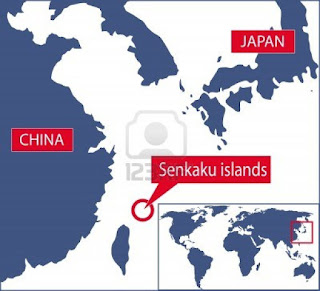 |
| Hugarian Jewish cellist Janos Starker. (photo credit: courtesy) |
Thanks to marketing hype, Yo-Yo Ma rings most bells and some might ask who is Starker. Ma is sort of a crossover performing both popular and classical music that reaches a larger audience.It includes performances in key events like the inauguration of president Barack Obama which was inflamed by voice over tactics having criticized China of the same during the Beijing Olympics.
In China's case, it was a straight forward case as both the recorded voice talent and the live performer were two different persons; Yang Peiyi and Lin Miaoke respectively. The USA presidential staff defended their move ferociously stating categorically that it was not voice over as the artist and performers were the same person and the 'mixing' of the two was due to strong wind conditions that could decapitate the microphones. The first few rows of audience clearly heard the dissonance and it quickly became news. Whether it was a lame excuse to ensure near perfect performance or otherwise, only God knows.
My knowledge of Starker is gleaned from his recordings as well as second hand accounts from the media. Cellists are most probably a distant second only to violinists in terms of works to show case them on the pedestal. These works can be classed as solos, sonatas and concertos. Some of the famous cellists both past and present includes Rostropovich, Piatigorsky, Maisky,DuPre and Casals that popularize Bach Cello Suites which the general public might hear excerpts of as background music. Starker won a Grammy award for his recording of this much recorded piece which says volumes of his skills.
Starker's parentage were both of Jewish stock with father of Hungarian and mother of Ukrainian descent. During the Second World War, he cheated death although he was interned in a Nazi prison that deeply affected him as he made much reference to it thereafter. Without being racist, even Adolf Hilter listens to records by Jewish musicians when they found records of them in his personal bunker.
He was a child prodigy and much sought after during his life time. It saddens me that such a great musician spent his final days in a hospice in Bloomington, Indiana USA instead of his home according to New York Times corrigendum who thought he died in his home instead at a ripe old age of 88. Plus he is survived by many close ones like his two daughters, three grand children and his second wife. His first marriage ended in divorce like most talented musician perhaps due to their idiosyncrasies.
Starker's persona seems like polar opposites to his musical style. He was well known for his technical mastery sometimes edging on being a stoic. He recounted in an interview with Internet Cello Society in 1996 that he is a musician, not an actor and criticizing some musicians for acting like making love to themselves on stage. To add leanness to this, he was judicious in the use of vibrato which only gain fade in recent past. Excessive vibrato is like women smearing lipstick on their face according to him. This was an interesting conjecture as he lost the top place to his student Ivan Janzer in a Geneva Cello Competition in 1946 on account of technical accuracy. This did not dampen the teaching aspect of his career as he himself remarked that he cannot perform without teaching and cannot teach without performing.
Just as well that this humiliating episode happened early in this life as humility wass certainly not in his dictionary. Fellow peer Rostropovich shared this about Starker “What I’d like to see is a little more humility and dignity displayed towards our art, and less self-aggrandizement,” in a 1980 interview with People Magazine.On one occasion reported by The Telegraph, he remarked that Rostropovich is more famous but he is a greater cellist. For Jacqueline DuPre whose life was cut short by multiple sclerosis, his view being that she gave too much of her life to music until there was not much left.
This off stage behavior was not only limited to his peers but also to conductors.He was quoted by New York Times reporters that "conductors are the most overrated musician" having cross swords with giants like Herbert von Karajan and Eugene Ormandy. In the case of Ormandy, the feud lasted 30 years after a joint performance of Die Fledermaus on account that Ormandy did not know the score according to Starker. The verdict on who rules the stage; conductor or soloist will never cast in stone. My own opinion is more about harmony as well as seducing rather than forcing each other into their agendas.
Cigarettes and Scotch were his other habits or rather addictions as he keeps them close with him always. It was rumored that he once cancelled a concert as the hall imposed a strict no smoking rule.
Which was his real character? As expressed by his music or his off stage character? You be the judge.
Peter Lye aka lkypeter
Safe HarborPlease note that information contained in these pages are of a personal nature and does not necessarily reflect that of any companies, organizations or individuals. In addition, some of these opinions are of a forward looking nature. Lastly the facts and opinions contained in these pages might not have been verified for correctness, so please use with caution. Happy Reading. Copyrights of all contents in this blog belongs to Peter Lye unless stated otherwise.
Which was his real character? As expressed by his music or his off stage character? You be the judge.
Peter Lye aka lkypeter
Safe HarborPlease note that information contained in these pages are of a personal nature and does not necessarily reflect that of any companies, organizations or individuals. In addition, some of these opinions are of a forward looking nature. Lastly the facts and opinions contained in these pages might not have been verified for correctness, so please use with caution. Happy Reading. Copyrights of all contents in this blog belongs to Peter Lye unless stated otherwise.




























